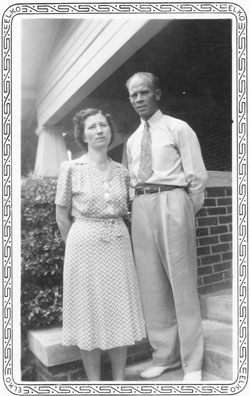Has an older person ever told you something and you had no idea what it the world that person was talking about? It happened to me more than once. Let me share a few that you might have heard.

One of my grandfathers was born in Jackson County, Alabama. That’s in northern Alabama, not far from eastern Tennessee and northwestern Georgia. In other words, he was born in the foothills of the Appalachian Mountains. For many years it was an isolated region. When they were invited somewhere, the usual reply was “I’ll be there if the creeks don’t rise.”
The first thing that comes to mind is floods, or small waterways scattered across super saturated grounds. Something like we have seen repeatedly this fall. You see that when there is no place for the standing water to go.
But no, that’s not what the statement meant. Insert Creeks in place of creeks and you have a Native American group who inhabited the regions before the American Revolution. The Creeks were peaceful farmers until Anglos crossed the Appalachians looking for farm land and finding the first Gold Rush in the United States. Not as big as the California Gold Rush of 1849, but still a substantial find in northwest Georgia.
Immediately, white settlers came looking for gold and good farm lands. While the Creeks were known as peaceful farmers, they quickly turned into vicious warriors. When they chose to protect their own land and homes, the settlers considered the Creeks were on an up rise, hence “If the Creeks don’t rise.” It was definitely dangerous to be out and about at such a time.
We all know that an obligation is like a debt, but not necessarily involving money. You might owe a friend a favor. We have an obligation to stand when the flag is raised at a football game. We have an obligation to send our young children to school. But years ago, men would say “Much obliged,” instead of saying thank you. I frequently asked my mother why one man owed another money. Very confusing for me since I had only recently learned the meaning of an obligation.
My third example is the phrase, “Christmas Eve Gifts.” On Christmas Eve the same grandfather always greeted everyone with that saying, as did many other people in my hometown. It is a pure Southern expression. It seems if originated on plantations. Young slave children greeted the master or the overseer with “Christmas Eve Gifts” in hopes of receiving coins, nuts, fruit, candy, etc. That was the only time they were allowed to beg. White children were not allowed to participate. Of course, this happened before the Civil War ended.
While in graduate school, I read about the custom and was surprised to hear the origin. Obviously poor white children and some not so poor picked up the custom. By the 1950s the custom was abandoned, except for grandfathers who brought small gifts to their grandchildren on Christmas Eve.
